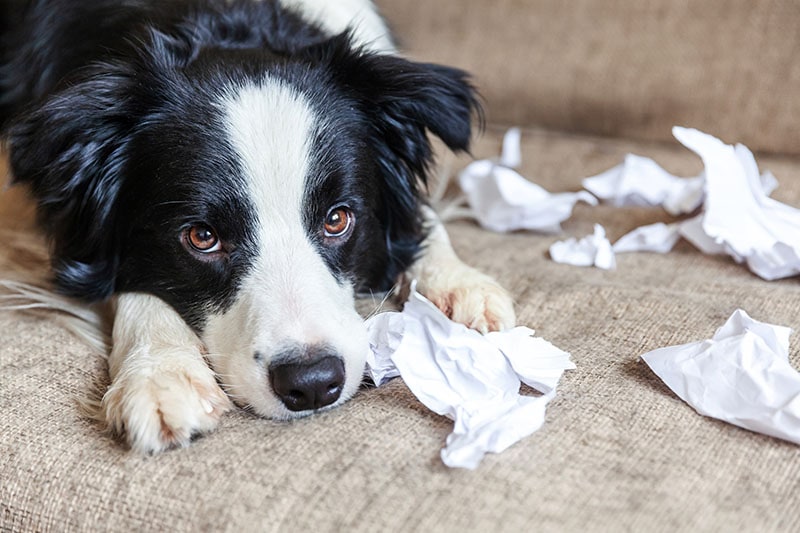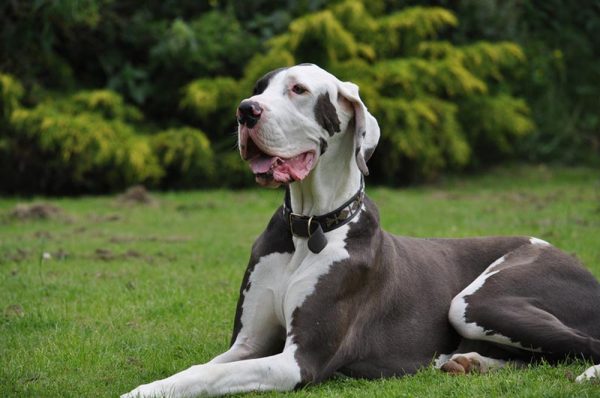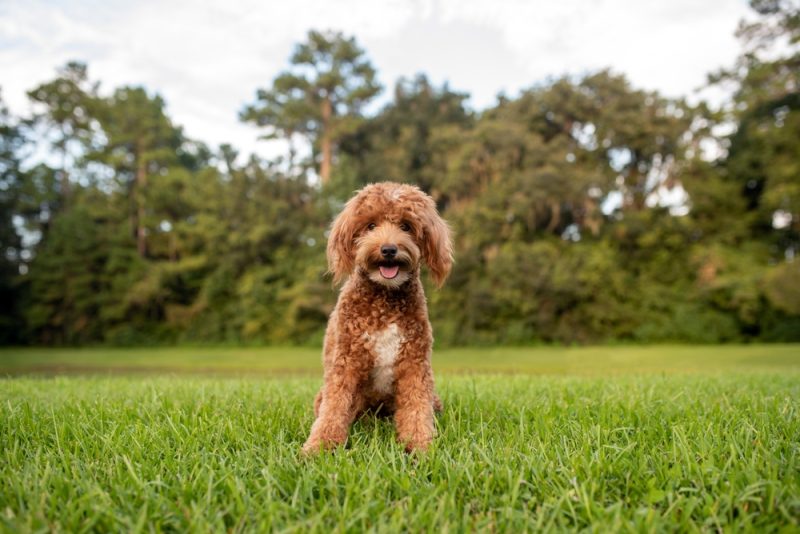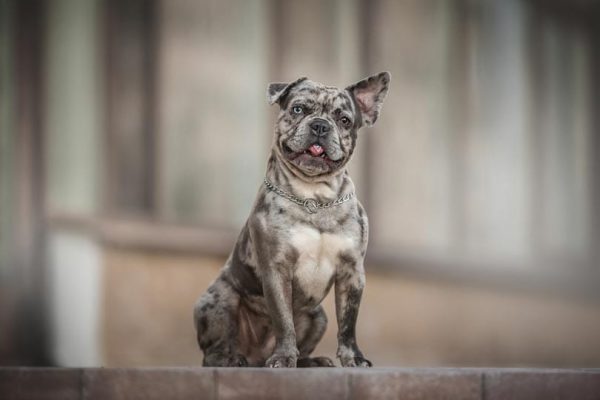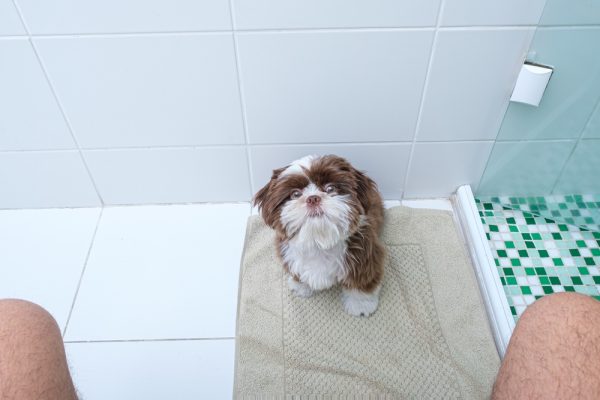Separation anxiety is the most common type of anxiety among dogs.1 Affected dogs exhibit distress when left alone for any length of time. While all dogs can suffer from anxiety, some breeds seem more prone to it than others.

The 9 Dogs Prone to Anxiety
1. Border Collie
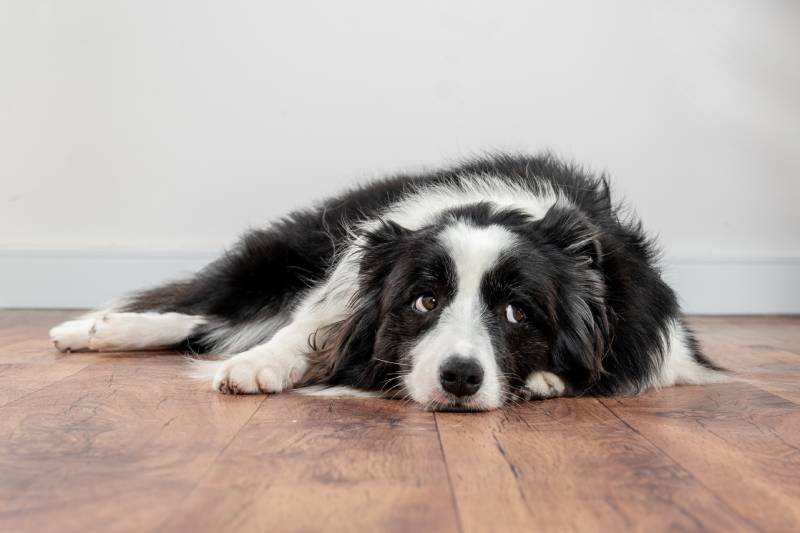
Border Collies consistently top the list of the most intelligent dog breeds. But with such intelligence comes a downside: They are among the most anxious dogs. Their keen intelligence is only partly to blame, however. These are incredibly active dogs that were bred for their herding abilities. As a result, they are miserable if they don’t get enough exercise to burn off their excess energy. Since their high need for activities goes hand in hand with their deep attachment to their owner, this makes them more prone to separation anxiety when left on their own.
2. Spanish Water Dog
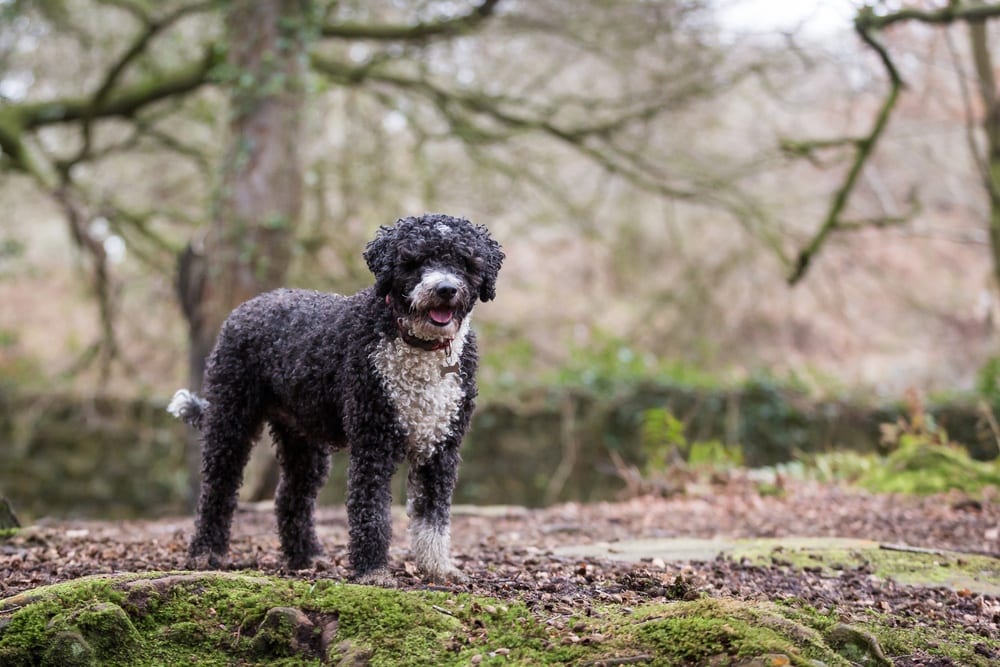
The Spanish Water Dog is a very active herding dog that loves to work. They have a gorgeous curly coat and boundless energy. Their intelligence and alert nature can make them prone to anxiety, and in a 2020 Finnish study, they were shown to be more likely to be fearful of strangers.2
3. Lagotto Romagnolo
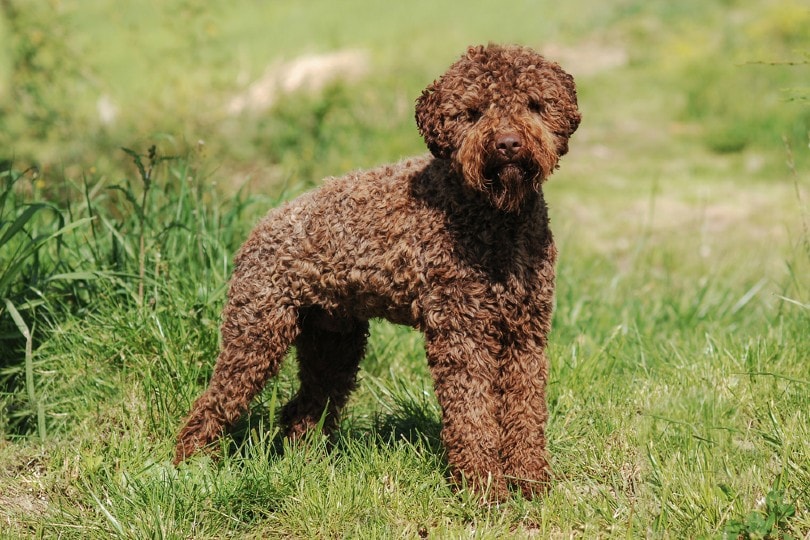
The Lagotto Romagnolo is an adorable breed that originated in Italy. However, these truffle-hunting dogs are sensitive to noise, such as thunder, gunshots, noisy vehicles, and loud music. This is also the case for many other breeds, but the noises trigger the fear and anxiety responses in these dogs.
4. Labrador Retriever
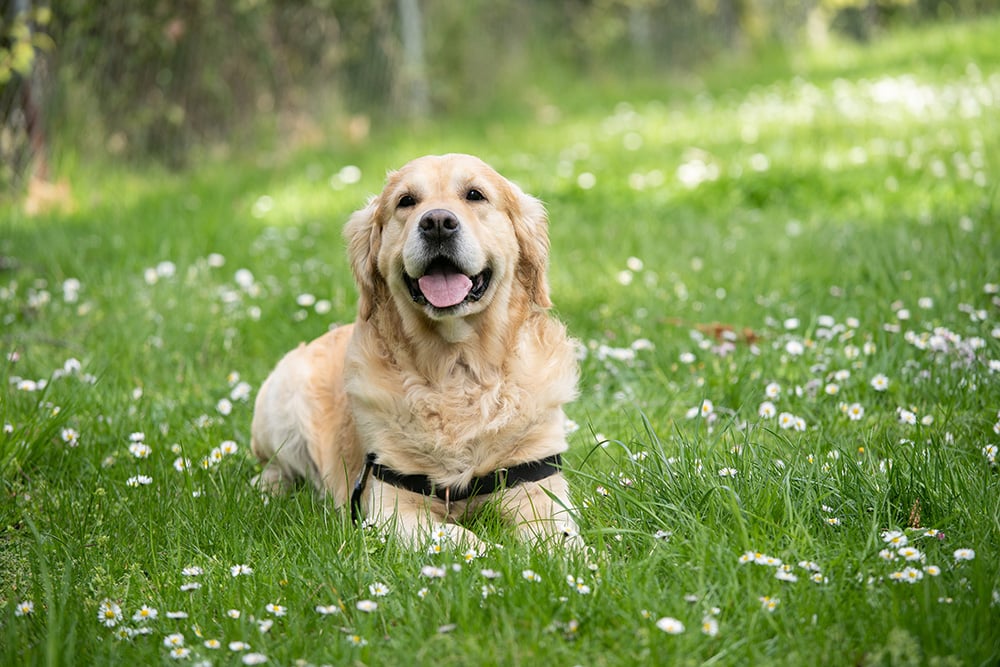
Labradors are wonderful companions for families. They are especially adored for their playful and clumsy nature but need plenty of love and attention to maintain that joyfulness. That is why Labs may find it difficult to tolerate being alone, as it makes them anxious and depressed.
5. German Shepherd
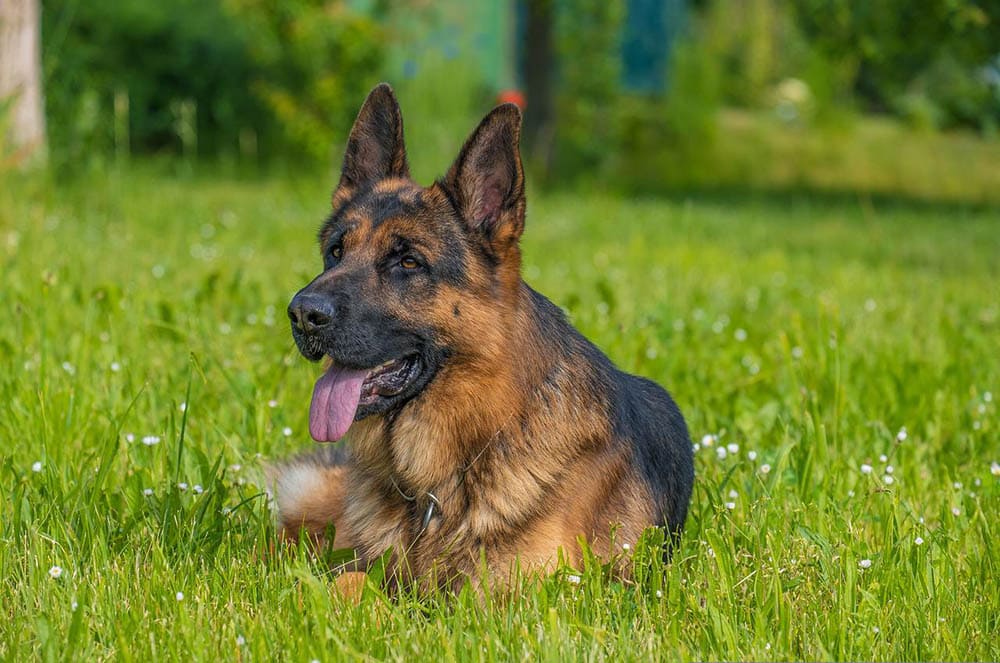
German Shepherds display a perfect aura of assertive and calm level-headedness. However, they form deep bonds with their favorite human, and they can develop anxiety when separated for too long.
6. Jack Russell Terrier
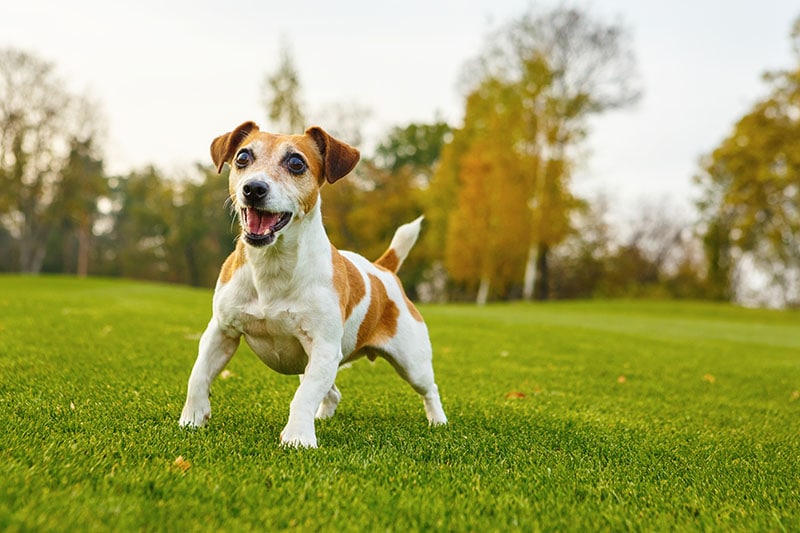
Jack Russell Terriers are smart, energetic little pups that need plenty of time and devotion from their owners to thrive. It’s common for them to experience stress and anxiety when their owner leaves the house, especially if they haven’t taken their daily walk.
7. Bichon Frisé
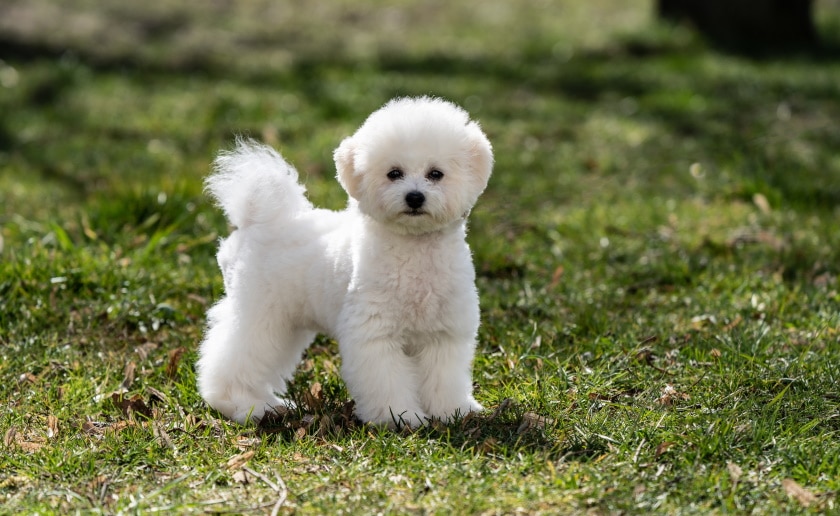
Bichon Frisés don’t need hours of daily exercise to release their stress. However, since these adorable canines were bred primarily to be companion dogs, spending time with their humans is a top priority for their happiness. Bichon Frisés can be prone to stress and depression if they are away from their families for long periods, and incessant barking can be a way for them to communicate their anxiety and frustration.
8. Australian Shepherd
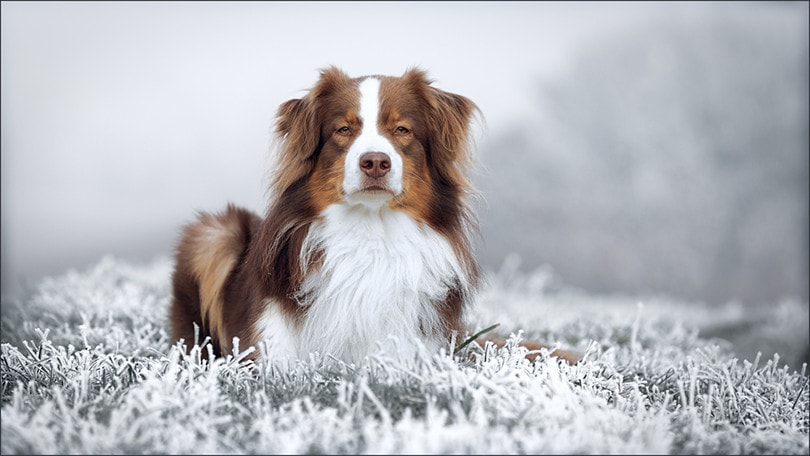
Australian Shepherds are lean, energetic herding dogs, so their daily mental and physical needs are high. These affectionate pups also bond closely with their owners, which means they can suffer when left alone for long periods. They need proper socialization and training to manage their anxiety better when separated from their family.
9. Miniature Schnauzer
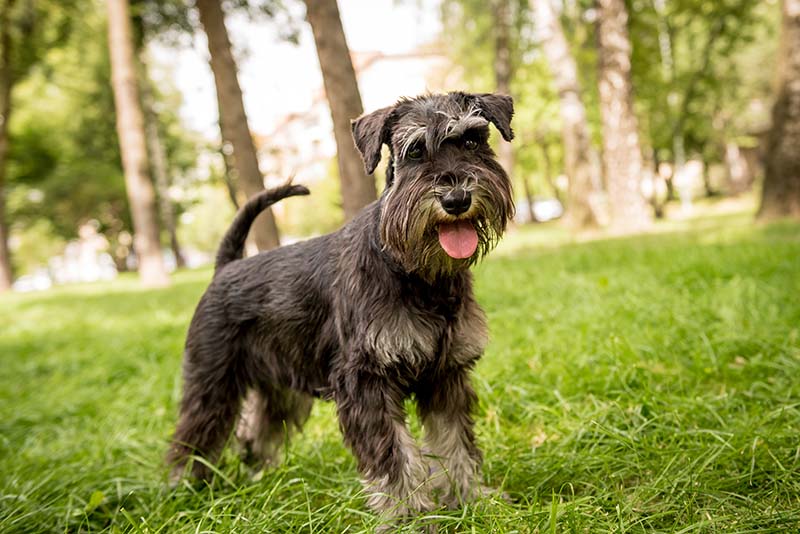
A study published in Nature showed that Miniature Schnauzers can display high levels of aggression and social fearfulness (fear of strangers and unfamiliar dogs). When confronted with unknown people or animals, Miniature Schnauzers have an increased risk of showing aggression.

Why Are Some Dogs More Prone to Anxiety Than Others?
Anxiety is not a burden that only purebreds carry. Mixed breeds are not immune to it, and in fact, almost all dogs can display a certain degree of anxiety. However, for various reasons, some may be more prone to the behavior.
One possible cause is genetics. Like humans, dogs can inherit certain traits from their parents, including temperament and anxiety. Another factor is socialization and early experiences. Dogs that weren’t properly socialized as puppies may be more susceptible to developing anxiety later in life. Traumatic experiences, such as being frightened during sensitive times in their development, increase the likelihood of a dog becoming stressed and anxious.
Other factors that can contribute to anxiety include changes in routine or environment, lack of exercise or stimulation, and medical conditions that can cause pain or discomfort.
How to Help Relieve Your Dog’s Anxiety
If you suspect that your dog is suffering from anxiety, consult a veterinarian to determine the underlying cause of your pet’s anxiety. They will be able to establish an adequate treatment for your dog, which could include modifications to incorporate into their routine, training, or medication.
If you need to speak with a vet but can't get to one, head over to PangoVet. It's our online service where you can talk to a vet online and get the advice you need for your pet — all at an affordable price!


Final Thoughts
Keep in mind that while some breeds may be more prone to anxiety, any dog can experience it to varying degrees. The takeaway is to focus on solutions that will improve your dog’s quality of life.
While there are many ways to help an anxious pet feel better, it’s best to seek the help of a canine behavior professional first so they can analyze your dog. With patience, love, and proper care, you should notice an improvement in your canine companion’s emotional state and general well-being.
See Also:
Featured Image Credit: Julia Zavalishina, Shutterstock
